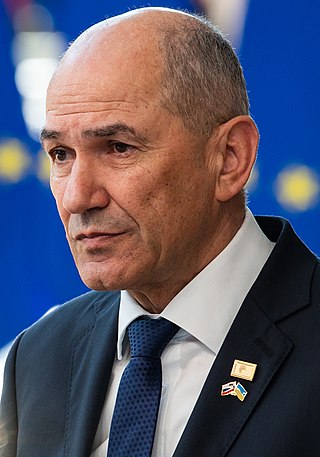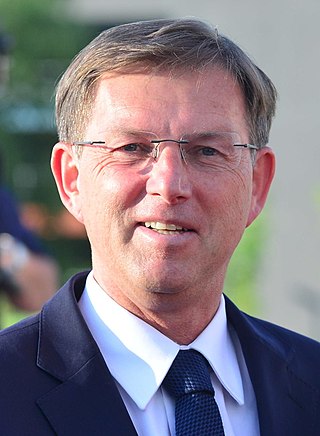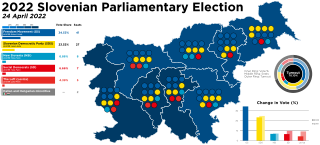Slovenia in EU institutions
Slovenia in the Council of the EU
Slovenia is represented in the Council of the European Union by the Government. Usually ministers represent the state, but also state secretaries, permanent representative or deputy permanent representative can represent Slovenia in the meetings.
Current representation
| Configuration | Responsible ministry |
|---|---|
| Ministry of Foreign and European Affairs (general) |
| Ministry of Cohesion and Regional Development (cohesion) | |
| Ministry of Digital Transformation (digitalization) | |
| Ministry of Foreign and European Affairs (general, development) |
| Ministry of Defence (defence) | |
| Ministry of Economy, Tourism and Sport (trade) | |
| Ministry of Finance |
| Ministry of Agriculture, Forestry and Food |
| Ministry of Justice (justice) |
| Ministry of the Interior (home affairs) | |
| Ministry of Defence (civil protection) | |
| Ministry of Labour, Family, Social Affairs and Equal Opportunities (employment, social protection, equal opportunities) | |
| Ministry of Health (health) | |
| Ministry of Economy, Tourism and Sport (consumer protection) | |
| Ministry of Economy, Tourism and Sport (internal market, industry, space, tourism) |
| Ministry of Higher Education, Science and Innovation (research) | |
| Ministry of Infrastructure (transport) | |
| Ministry of the Environment, Climate and Energy (energy) | |
| Ministry of Digital Transformation (telecommunications) | |
| Ministry of the Environment, Climate and Energy (environment) |
| Ministry of Natural Resources and Spatial Planning (water, nature) | |
| Ministry of Education (education, youth) | |
| Ministry of Economy, Tourism and Sport (sport) | |
| Ministry of Culture (culture, audiovisual issues) |
Presidency of the Council
Slovenia held the presidency of the Council twice since 2004, in the first half of 2008 and the second half of 2021. Next Slovenian presidency is not yet scheduled. The first presidency was led by the first Janša government and held prior to the entry into force of the Lisbon Treaty and therefore Slovenian Prime Minister Janez Janša also presided over then informal meetings of the European Council. The second presidency was also led by Janša's government.
Slovenia is a member of the first presidency trio together with Germany and Portugal.
Slovenia in the European Council
Slovenia is represented in the European Council by the prime minister, because of its parliamentary system of government.
Current representative of Slovenia in the European Council is Prime Minister Robert Golob, member of the liberal bloc (Renew).
Slovenia in the European Parliament
Slovenia currently has 9 members of the European Parliament (change after 2024 election), representing Slovenian and all other European citizens. Slovenian MEPs never held any position in the leadership of the Parliament.
Current MEPs
| MEP | Group | Positions | |
|---|---|---|---|
| Romana Tomc | EPP |
| |
| Milan Zver | EPP |
| |
| Branko Grims | EPP |
| |
| Zala Tomašič | EPP |
| |
| Matej Tonin | EPP |
| |
| Vladimir Prebilič | G/EFA |
| |
| Matjaž Nemec | S&D |
| |
| Irena Joveva | Renew |
| |
| Marjan Šarec | Renew |
| |
Group leadership positions
In 2014-2019 term Tanja Fajon (S&D), then a second term MEP, was elected vice-president of the Progressive Alliance of Socialists and Democrats Group, the first ever Slovenian MEP to hold group leadership position. In 2024-2029 term Romana Tomc was elected vice-president of the European People's Party Group, and Irena Joveva was elected vice-president of the Renew Europe.
Slovenia in the European Commission
Since becoming a member of the EU Slovenia has been entitled to a one member of the European Commission. Slovenia has never held a presidency or vice-presidency of the commission.
| Commissioner | Party/Group | Term began | Term ended | Portfolio | Commission | |
|---|---|---|---|---|---|---|
| Janez Potočnik | ALDE | 1 May 2004 | 21 November 2004 | Enlargement | Prodi | |
| 22 November 2004 | 9 February 2010 | Science and Research | Barroso I | |||
| 9 February 2010 | 31 October 2014 | Environment | Barroso II | |||
| Violeta Bulc | ALDE | 1 November 2014 | 30 November 2019 | Transport | Juncker | |
| Janez Lenarčič | Renew | 1 December 2019 | Incumbent | Crisis Management | von der Leyen | |
| Tomaž Vesel | Renew | TBD | ||||
Additionally in 2014, incumbent Primer Minister Alenka Bratušek was a candidate for a vice-president for the Energy Union in the Juncker Commission, but did not pass the hearing in the European Parliament. She was later replaced by Deputy Prime Minister and Cohesion Minister in the Cerar Government Violeta Bulc. President Juncker switched portfolios of the Slovenian commissioner for a Transport portfolio and offered the Vice-Presidency of the Energy Union portfolio to a Slovak Maroš Šefčovič. [2]
Slovenians in the EEAS
Several Slovenian diplomats served in the European External Action Service (EEAS) as heads of missions of the European Union around the world. The first diplomat to serve in the EU diplomatic service was former foreign minister Samuel Žbogar, serving in Kosovo (2011-2016).
| EU Ambassador | Country | Term |
|---|---|---|
| Samuel Žbogar | also EU Special Representative to Kosovo | 2011–2016 |
| | 2016–2020 | |
| Mitja Drobnič | | 2012–2016 |
| Jernej Videtič | | 2015–2019 |
| | 2019–2022 | |
| Melita Gabrič | | 2021–Incumbent |
| Veronika Bošković-Pohar | | TBD |
| Aleška Simkić | | TBD |
European Commission's representation in Slovenia
| Head of Representation | Term |
|---|---|
| Zoran Stančič | 2016–2020 |
| Jerneja Jug Jerše | 2021–Incumbent |
Slovenia in the Court of Justice
Court of Justice
Marko Ilešič was the first and for now the only judge to serve on the Court of Justice in the name of Slovenia, serving from 2004 until 2024. He was a president of a chamber for two terms (2012–2018).
| Judge | Term began | Term ended | Positions |
|---|---|---|---|
| Marko Ilešič | 1 May 2004 | 21 June 2024 | President of Chamber (2012–2018) |
| TBD | Vacant |
Additionally to Judge Ilešič, Verica Trstenjak served as Advocate General at the Court of Justice (7 October 2006–28 November 2012).
General Court
Slovenia is entitled to two judges at the General Court.
| Position 1 [3] | Position 2 [3] | ||||||
|---|---|---|---|---|---|---|---|
| Judge | Term began | Term ended | Positions | Judge | Term began | Term ended | Positions |
| Verica Trstenjak | 7 July 2004 | 6 October 2006 | |||||
| Miro Prek | 6 October 2006 | 26 October 2019 | President of Chamber (2013-2019) | ||||
| Maja Brkan | 6 July 2021 | Incumbent | Damjan Kukovec | 13 January 2022 | Incumbent | ||
Two candidates, Marko Pavliha and Klemen Podobnik, did not pass the hearings before the committee, established according to Article 255 of TFEU. [4] [5]
European Public Prosecutor's Office
Slovenia is a participating state in the European Public Prosecutor's Office since 2019.
| European Prosecutor | Term |
|---|---|
| Jaka Brezigar | 2020-Incumbent |
The Janša Appointment Affair
During the Slovenia's second Council presidency in 2021 Slovenian government, then led by Janez Janša, prevented the selection of two Slovenian delegated prosecutors, because of which then justice minister Lilijana Kozlovič resigned. ORF and other media reported that Janša might have opposed the nomination of the two prosecutors because they had also been involved in investigations against him in the past. [6] EU justice commissioner Didier Reynders proposed a compromise to appoint just one delegated prosecutor, but this was rejected by economy minister Zdravko Počivalšek as overstepping governments' competence and criticising the EU for exerting pressure. [6] Slovenia was also urged to appoint delegated prosecutor by the Commission president Ursula von der Leyen during European Commission's visit to Slovenia on 6 July 2021. [7]
Slovenia in other institutions
The European Committee of the Regions includes seven Slovenian members and their deputies who act in the name of two representative organisations of Slovenian local communities: the Association of Municipalities and Towns of Slovenia and the Association of Municipalities of Slovenia. [8]
The European Economic and Social Committee has seven Slovenian members that represent the interests of employers, trade unions and other interest groups. [8]
The Governor of the Bank of Slovenia sits in the Governing Council of the European Central Bank while other experts from the Bank of Slovenia operate in its working bodies. [8]














